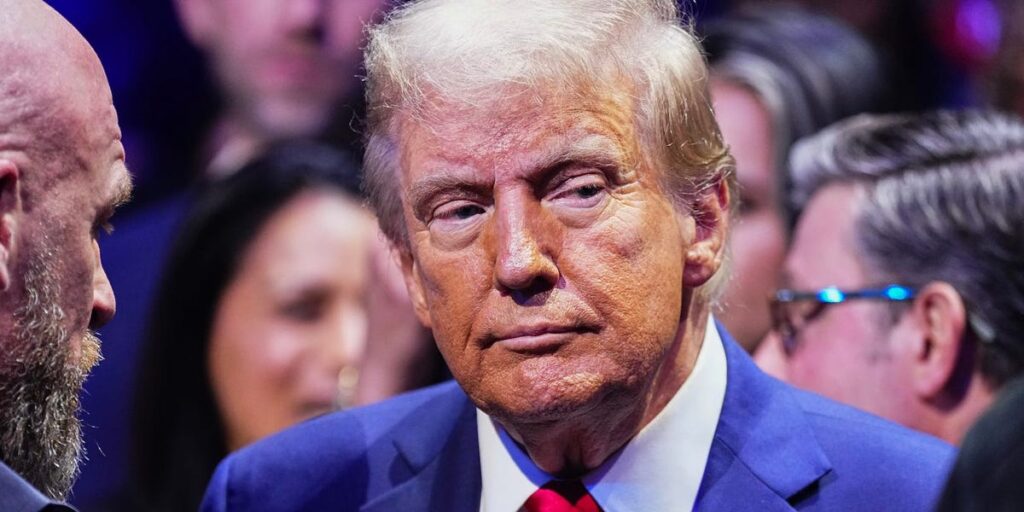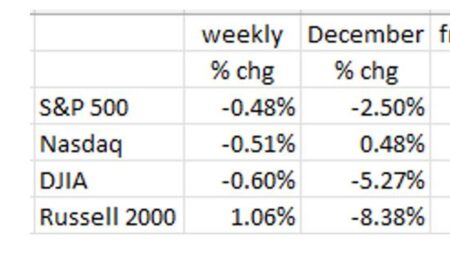- Since his re-election, Trump has sought to dismiss his hush money case in the interest of justice.
- His lawyers cited his victory, presidential immunity, and the supremacy of US law over state law.
- On Friday, Judge Merchan rejected that argument and set a January 10 sentencing date.
A New York judge has rejected Donald Trump’s latest bid to dismiss his hush money indictment in the interest of justice and set a January 10 sentencing date — just 10 days before the inauguration.
In his 18-page ruling, State Supreme Court Justice Juan Merchan gave Trump the choice of appearing in person in his Manhattan courtroom or virtually.
Merchan said he is inclined to sentence Trump to zero penalties — what’s called an “unconditional discharge” — meaning no jail term, no fines, no community service, no probation.
Such a sentence would oblige Trump’s concern with the demands of the transition and pending presidency, as well as reflect prosecutors’ view that jail is not a practical recommendation, the judge wrote.
Still, Trump’s arguments failed to justify the outright dismissal of the indictment or overturning the jury’s May 30 verdict, the judge found.
Trump’s arguments were “unpersuasive as no compelling factor, consideration or circumstance submitted demonstrate that imposition of sentence would result in injustice,” the judge wrote.
Three prior sentencing delays
Trump’s sentencing has been delayed three times in the half-year since a Manhattan jury found he falsified Trump Organization records throughout his first year in office to retroactively hide a $130,000 hush-money payment that silenced porn actress Stormy Daniels 11 days before the 2016 election.
His first sentencing date, July 11, was scratched to allow time for a back-and-forth over the impact of the US Supreme Court’s July 1 presidential immunity opinion.
The second sentencing date, September 18, was scuttled after Trump argued it was too close to the November 5 election. The third date, November 26, was ditched because the parties needed time to litigate the next steps triggered by his win.
He faced up to four years in prison at sentencing, though former New York judges have called it unlikely that Trump — a 78-year-old non-violent felon with no prior criminal record — would be sent to jail. Any sentence — including probation and community service — would almost certainly be stayed during the yearslong appeal process, they also said.
Over the past two years, Trump has sought more than a dozen times to dismiss the hush money case on various grounds, to convince the judge to recuse himself, and to have the case transferred to federal court.
In a dismissal motion from early December, his lawyers argued without success that Trump has presidential immunity from prosecution now, as president-elect.
Merchan rejected that bid two weeks later, arguing that the hush-money case hinged on “decidedly personal acts,” plus copious evidence of guilt, all of which are exempt from presidential immunity protection.
Interest-of-justice dismissal
New York’s “furtherance of justice” law lets a judge dismiss a conviction or indictment when, due to “some compelling factor,” it is clear that continuing the case “would constitute or result in injustice.”
That compelling factor is Trump’s pending presidency, his lawyers argued last month.
Meanwhile, Bragg’s side countered that Trump has not met the high legal bar for an interest-of-justice dismissal.
By law, a judge must weigh the seriousness of the offense, the “history, character and condition of the defendant,” and “the impact of a dismissal upon the confidence of the public in the criminal justice system.”
The Constitution’s Supremacy Clause
In this latest dismissal bid, Trump’s lawyers also referenced the US Constitution’s Supremacy Clause, citing case law they said bars “hostile state courts” from interfering with the federal government. Here, Bragg countered that there would be no such interference from sentencing Trump prior to his taking office.
“Trial ended more than six months ago with the jury’s guilty verdict on May 30, 2024, so there is no risk that a time-consuming trial would require defendant’s full-time presence in court and unduly burden the presidential transition process,” prosecutors wrote the judge last month.
Prosecutors also said that rather than see the whole case tossed, they would agree to defer sentencing until after the election.
This is a breaking story; please check back for developments.
Read the full article here
















